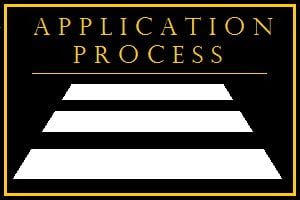 So, you’re in the thick of things. You have written out your SOP, you have got the transcripts and letters of recommendation, and you have filled up the University application. But, you still have a question: “Is this enough? Or, is there something else I can do to make my application really stand out from the rest?”
So, you’re in the thick of things. You have written out your SOP, you have got the transcripts and letters of recommendation, and you have filled up the University application. But, you still have a question: “Is this enough? Or, is there something else I can do to make my application really stand out from the rest?”
Before you submit your application, consider this: what makes a “good” application a “great” one is the extra effort you put in. So, here are our three top tips for fine-tuning your application and making it one that is really great:
- Research the school website – There are a lot of subtle hints which you can pick up from college websites, so take a little time to browse through the sites carefully. One thing to look for is the graduate student handbook which you should download and read. It is important to go through details about the faculty research and labs. Doing this will help you to to get a clear idea about what you can focus on during your studies in the university you are considering, and it is therefore very important in deciding which universities to apply to. It will also help you to decide which research areas to highlight in writing your SOP.
- Connect with somebody – It’s a good idea to connect with either staff or seniors at a grad school beforehand (preferably do both). You can email the member of faculty that you find most impressive and would like to work with in the future. This will help if you want to establish contact – a bonus when you already have a proven and focused research interest. But remember, that it is dangerous to do this without having a clear idea of what you want to do, or why you want to do it. Also, don’t overdo it – you might end up boring the professor and make him or her completely unwilling to respond to you.
- Proofread your documents – Make sure that you don’t end up sending SOPs to a university which mention a different one as the one you are applying to – at best this will be seen as a sign of carelessness, at worst it may even be taken as an insult; and it’s surprising how many students make that mistake. But also, send copies of your draft SOP to to a teacher, or guide who knows your work and progress and to at least 3-4 trusted friends. They can tell you whether what you are saying makes sense or not.
And do take the time to draft a good SOP– it has a weight and importance of its own and can give you the opportunity to present your strengths in a way that no other document can. (Click this link to get an idea of how to do this.) But don’t get too worried if you can’t do this, the staff at DOA’s counseling center can help you put your SOP into top shape!
Related Links




 If you found the last post on roots helpful, here are 2 more roots which cover 25 GRE words. For those of you who have come directly to this post, here’s a link that will help you understand why we are talking about roots so much:
If you found the last post on roots helpful, here are 2 more roots which cover 25 GRE words. For those of you who have come directly to this post, here’s a link that will help you understand why we are talking about roots so much: